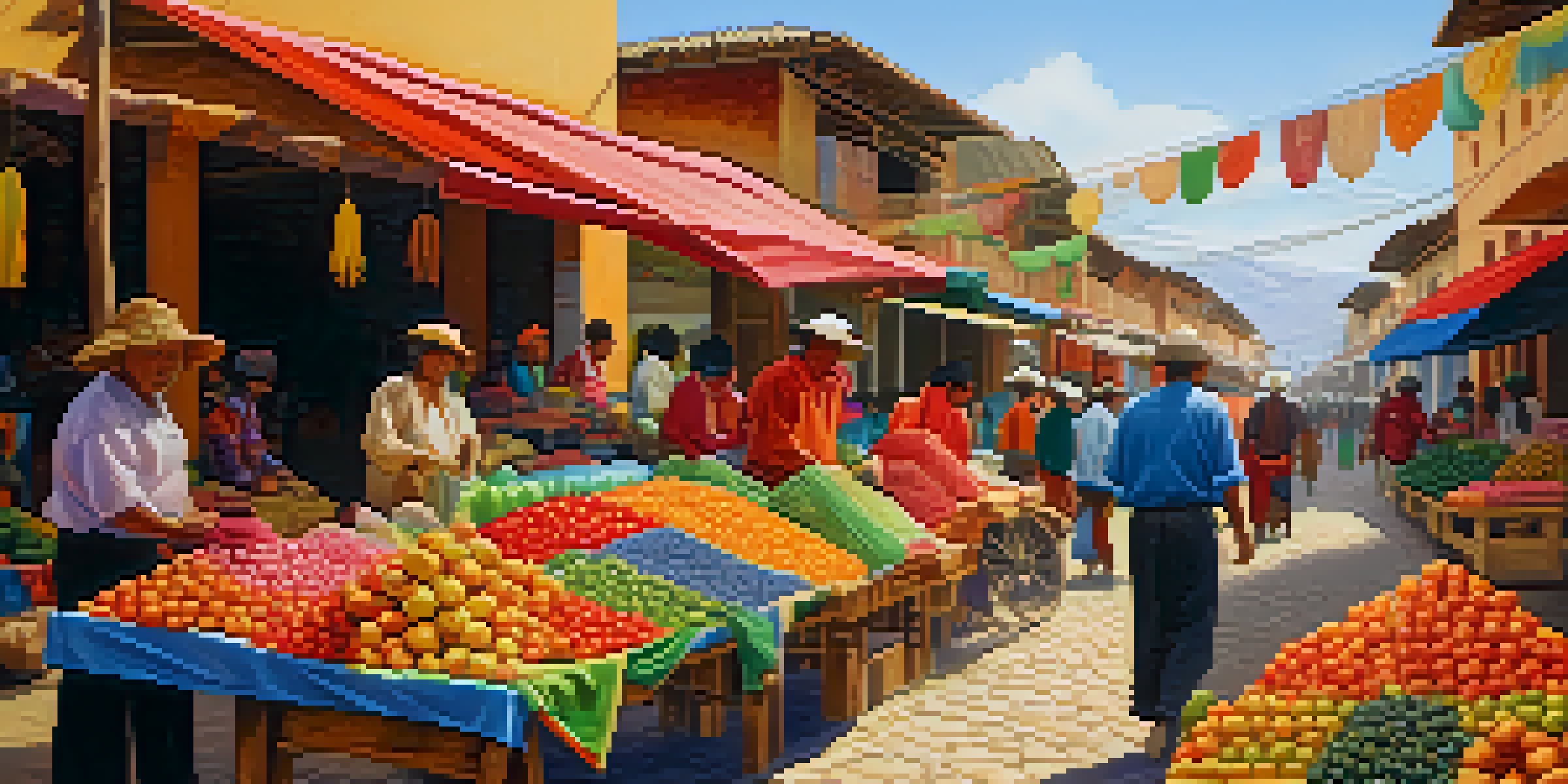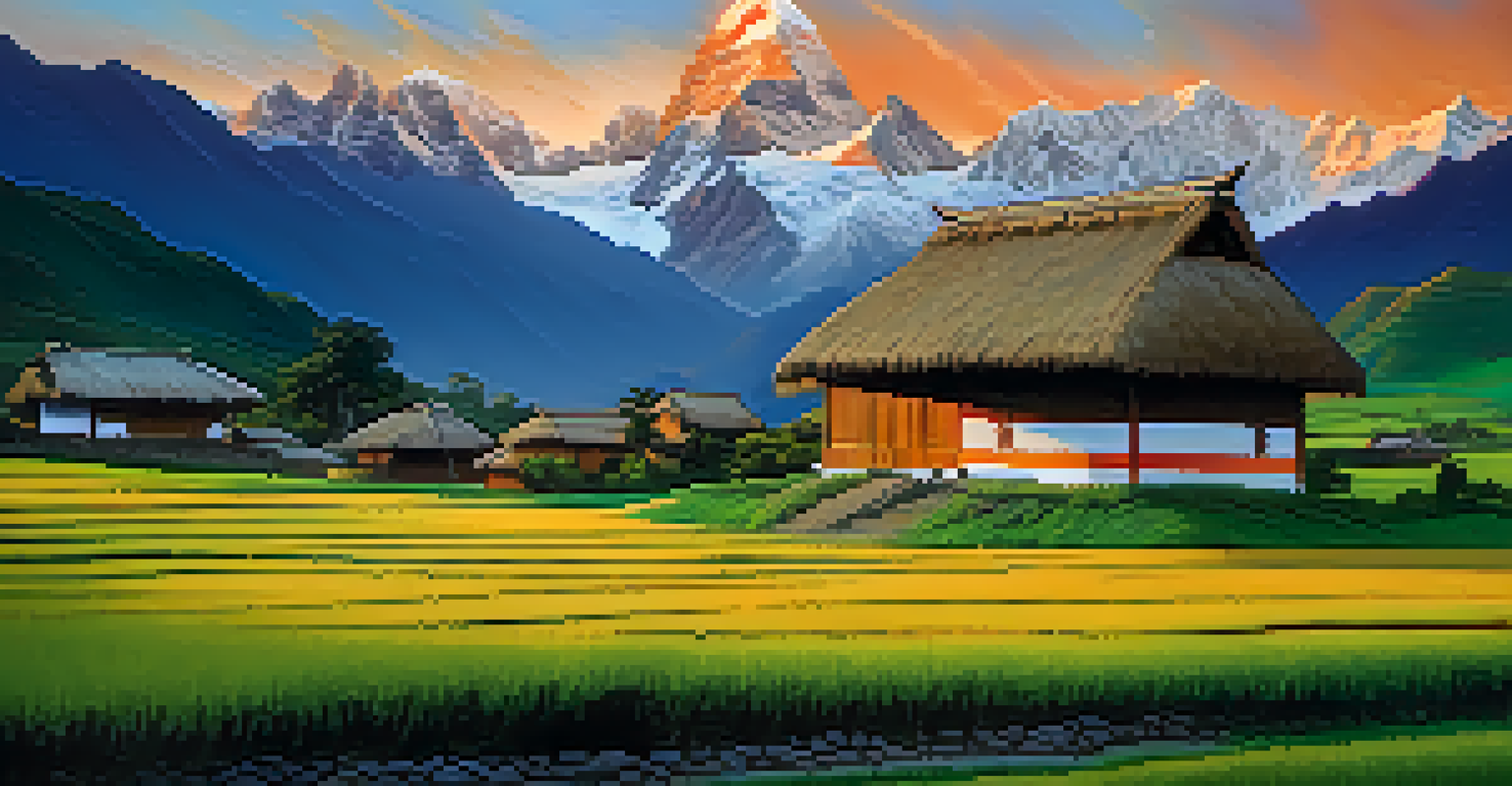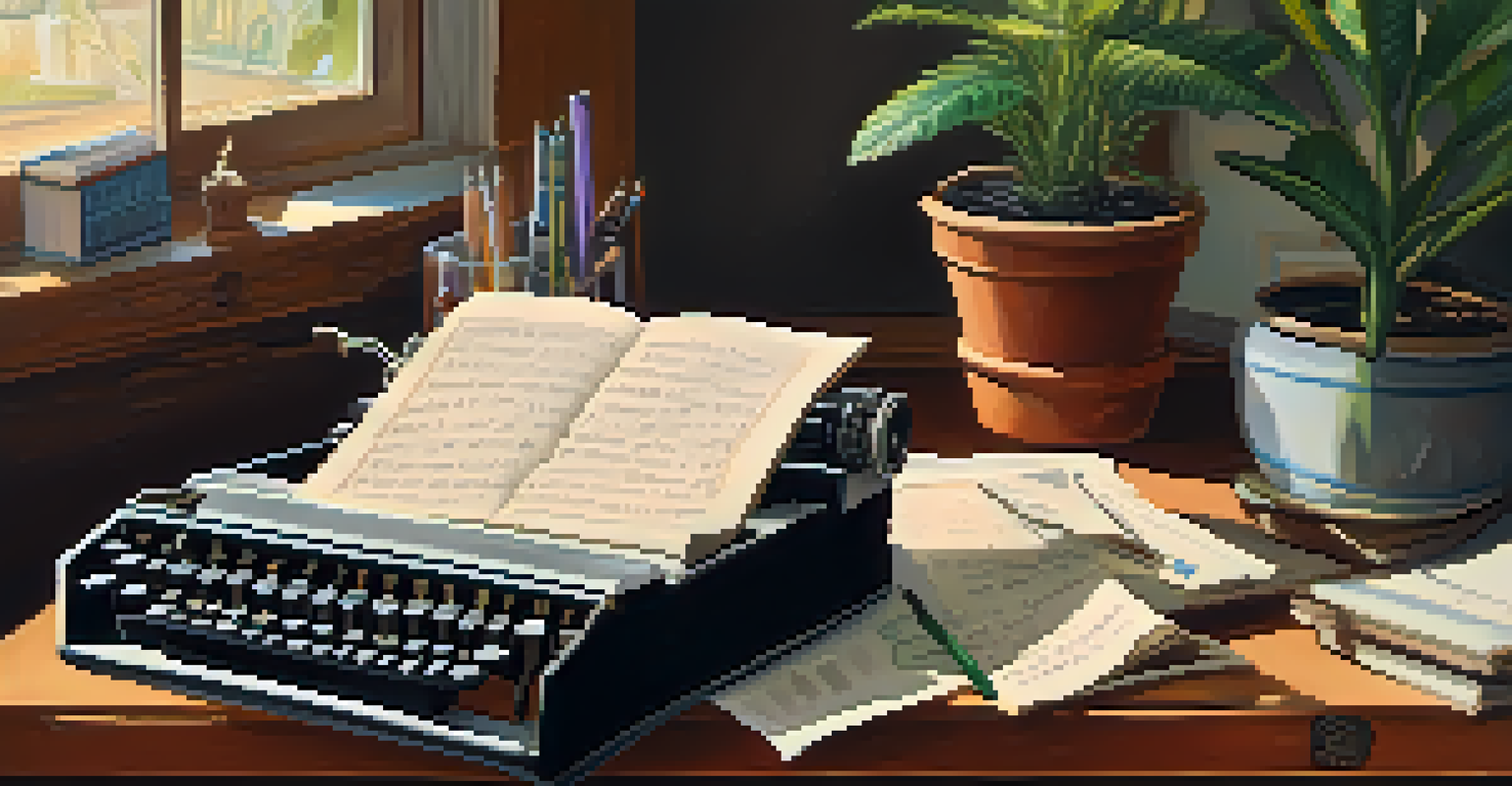Peruvian Literature's Influence on Latin American Literary Voices

Understanding the Roots of Peruvian Literature
Peruvian literature has a rich tapestry woven from indigenous, colonial, and contemporary threads. Its origins can be traced back to pre-Columbian oral traditions, which laid the groundwork for storytelling in the region. This unique blend of influences creates a distinct voice that resonates throughout Latin America.
Literature is a way of preserving our culture and reflecting on our identity.
The colonial era brought European literary styles and themes, merging them with local narratives. Writers like José María Arguedas celebrated indigenous cultures while critiquing colonialism. By doing so, they established a literary framework that other Latin American authors would later draw upon.
In essence, understanding Peruvian literature is crucial to grasping the broader Latin American literary landscape. Its diverse heritage not only reflects the country's complexities but also serves as a mirror for the entire region.
Key Figures in Peruvian Literature
Prominent figures such as Mario Vargas Llosa and César Vallejo have left indelible marks on both Peruvian and Latin American literature. Vargas Llosa, a Nobel laureate, is known for his nuanced exploration of power and identity, themes that resonate across the continent. His works often reflect the socio-political realities that many Latin American countries face.

César Vallejo, on the other hand, brought a deeply emotional and avant-garde approach to poetry. His unique style challenged conventional forms and inspired countless poets in Latin America to explore new literary techniques. Vallejo's emphasis on human suffering and existential questions continues to influence writers today.
Diverse Roots of Peruvian Literature
Peruvian literature is shaped by indigenous traditions, colonial influences, and contemporary themes, reflecting the complexities of Latin American identity.
These key figures not only shaped Peruvian literature but also opened doors for other Latin American authors. Their explorations of shared themes create a rich dialogue across national borders.
Themes of Identity and Culture in Peruvian Literature
Peruvian literature often grapples with themes of identity, particularly in relation to indigenous heritage and mestizaje, the blending of cultures. This exploration of identity resonates strongly with other Latin American writers who share similar historical contexts. Authors like Vargas Llosa tackle these issues head-on, prompting readers to reflect on their own cultural backgrounds.
Poetry is a way of connecting with the human experience, transcending time and borders.
Moreover, the interplay between urban and rural life frequently emerges in Peruvian narratives. This duality mirrors the broader Latin American experience, where cities and countryside are often at odds. Such themes encourage writers from various countries to examine their unique cultural landscapes.
By examining identity and culture, Peruvian literature fosters a sense of connection among Latin American writers, inspiring them to explore their own narratives and cultural complexities.
The Role of Magical Realism in Peruvian Literature
Magical realism, a literary style that blends the fantastical with the ordinary, finds a strong foothold in Peruvian literature. This genre allows authors to convey deep cultural truths while engaging readers' imaginations. Prominent writers like Mario Vargas Llosa incorporate elements of magical realism, enriching their narratives and making them relatable across cultures.
The use of magical realism often serves as a commentary on social and political issues, providing a lens through which to view the complexities of life in Latin America. By merging reality with the surreal, authors create a space for exploration and critique, inviting readers to question their understanding of the world.
Influential Figures and Their Impact
Key authors like Mario Vargas Llosa and César Vallejo have profoundly influenced both Peruvian and Latin American literature through their exploration of identity, culture, and emotion.
This blending of realities has inspired countless Latin American writers to adopt similar techniques. The shared literary device fosters a sense of unity among diverse voices, highlighting the interconnectedness of their experiences.
Impact of Peruvian Literature on Contemporary Writers
Contemporary Latin American writers frequently cite Peruvian literature as a significant influence on their work. The themes, styles, and narratives developed by earlier Peruvian authors continue to resonate today. This impact is evident in the way modern writers tackle issues of identity, culture, and power dynamics.
For instance, authors like Claudia Salazar Jiménez and Santiago Roncagliolo draw inspiration from the rich Peruvian literary tradition. They weave together personal and political narratives, reflecting the complexities of contemporary life in Latin America. Their works often echo the struggles and triumphs of earlier literary figures.
By building on the foundations laid by their predecessors, contemporary writers contribute to a vibrant literary landscape that honors its roots while pushing boundaries. This ongoing dialogue is essential for the evolution of Latin American literature.
Peruvian Literature's Global Influence
Peruvian literature's impact extends beyond Latin America, reaching readers and writers worldwide. The universal themes explored by authors like Vargas Llosa and Vallejo resonate with diverse audiences, sparking interest in Peruvian culture and history. This global perspective encourages cross-cultural dialogues, enriching the literary world.
As translations of Peruvian works become more accessible, international readers gain insight into the region's complexities. This exposure fosters a greater understanding of Latin American literature as a whole, showcasing the interconnectedness of various literary traditions.
Future of Literature Remains Dynamic
Emerging authors are reinterpreting traditional themes while addressing contemporary issues, ensuring that Peruvian literature continues to evolve and resonate with modern readers.
The global influence of Peruvian literature not only highlights its significance but also invites new voices to contribute to the ongoing narrative. This dynamic exchange enhances the richness of literature across borders.
The Future of Peruvian Literature in Latin America
The future of Peruvian literature appears promising, with new voices emerging and old themes being reinterpreted. Young authors are exploring contemporary issues such as migration, technology, and climate change, often drawing from the rich history of Peruvian literary traditions. This evolution ensures that Peruvian literature remains relevant and reflective of current realities.
Furthermore, the interconnectedness of Latin American literary communities encourages collaboration among writers. Events like literary festivals and workshops provide platforms for emerging authors to share their work and ideas, fostering mutual inspiration and growth.

As Peruvian literature continues to evolve, its influence on Latin American voices will undoubtedly persist. This dynamic interplay between past and present ensures that the literary landscape remains vibrant and diverse.